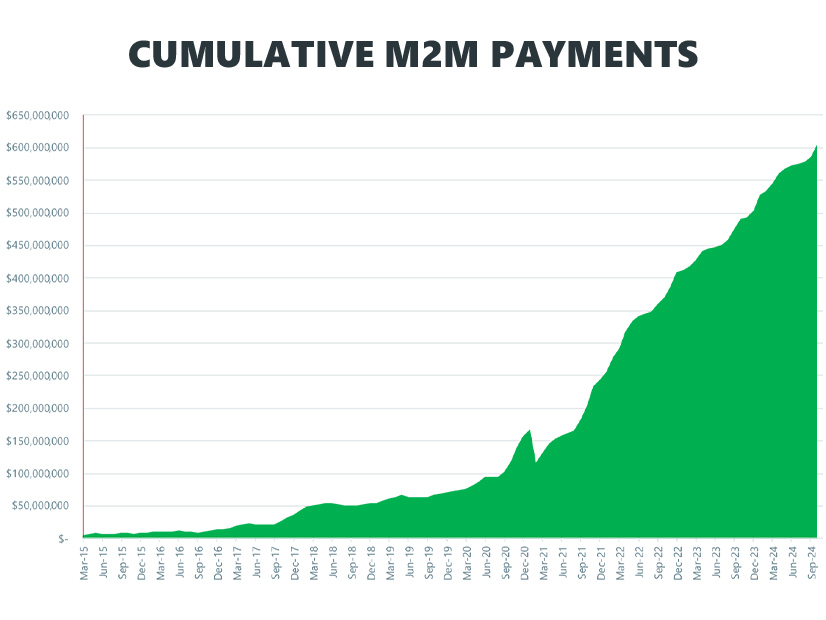MISO and SPP staff told stakeholders Dec. 13 that they will not perform a Coordinated System Plan in 2025 but will accept transmission issues for their annual review early in the year.
“This next annual issues review will be more of a check-the-box type of exercise than the normal, which would inform our decision to embark on a study in that particular year,” Clint Savoy, SPP manager of interregional strategy and engagement, told members during a meeting of the RTOs’ Interregional Planning Stakeholder Advisory Committee (IPSAC).
“What we’re hoping to do with this process that we’re trying right now would result in updates to the process going forward. I think that’s something we’re going to be considering as we’re looking for ways to enhance the current CSP processes,” he added. “First off, how do we improve on the needs that we’re looking to provide solutions for and make sure we’re looking at the right things? We always consider the transmission issues that our stakeholders submit, and oftentimes those lead to more targeted studies.”
The IPSAC is scheduled to hold its annual meeting March 28, with stakeholders facing a Feb. 26 deadline to submit their issues for review. The meeting is required by the grid operators’ Joint Operating Agreement, as is a CSP every other year.
Five previous CSP studies have failed to produce any joint projects over differences in allocating costs. That led the RTOs to try a different approach with the Joint Targeted Interconnection Queue (JTIQ), which identified a five-project portfolio estimated to cost as much as $1.6 billion that could support up to 29 GW of interconnecting generation along their seam.
FERC approved the JTIQ framework and cost allocation in November, and the Department of Energy in 2023 awarded the portfolio $464 million under its Grid Resilience and Innovation Partnerships program. (See DOE Announces $3.46B for Grid Resilience, Improvement Projects.)
The commission’s approval of the JTIQ process has cleared the way for RTO staffs to revise the JOA language and refocus on their Targeted Market Efficiency Project (TMEP) process. They told stakeholders the new study approach will be much broader and forward looking and will be without predefined, specific historic issues to be resolved.
The RTOs plan to begin the study work in 2025. They are collaborating on a filing timeline and promised a stakeholder review will be shared at the IPSAC’s annual meeting.
The TMEP process was used in the 2022 CSP. It studies smaller, congestion-relieving, cross-border transmission projects already in use between MISO and PJM. (See MISO, SPP Take on 2nd Interregional Planning Effort.)
M2M Settlements Pass $600M
During a meeting of the SPP Seams Advisory Group, also on Dec. 13, staff reported that market-to-market (M2M) settlements with MISO have totaled $604.02 million through October in SPP’s favor.
Under the M2M process that began in March 2015, the grid operators exchange settlements for redispatch based on the non-monitoring RTO’s market flow in relation to firm-flow entitlements. Those settlements have steadily accrued to SPP, topping $100,000 in 2020, doubling in 2021 and doubling again in 2022.
However, the pace has slowed recently as the RTOs have added transmission to relieve congestion along the seam. Cumulative M2M payments exceeded $500 million in December 2023, but they only reached $600 million in October.
The notorious Neosho (Missouri)-Riverton (Kansas) flowgate accounted for $73 million in M2M settlements to SPP, according to a staff report to the SAG in December 2023. That number hasn’t budged since then, an indication that SPP did not have any M2M settlements on the flowgate this year.
“This issue is likely resolved by the transmission construction that occurred in the Neosho area over the last two or three years,” SPP spokesperson Meghan Sever said in an email.




